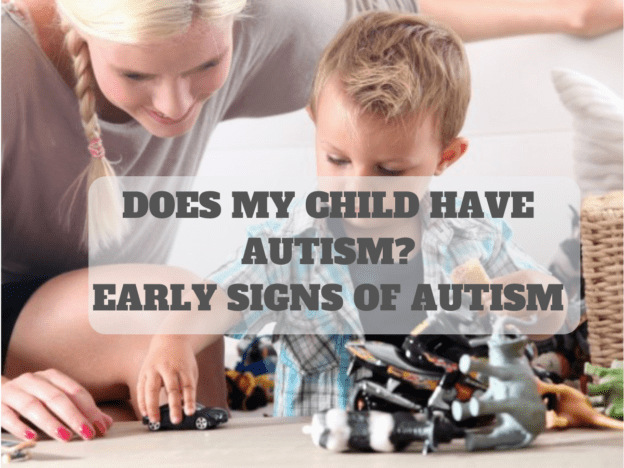Does My Child Have Autism?
Signs of Autism in 18 Month Old Children
Noticing that your child is different to his or her siblings or peers can be understandably daunting. However, knowing the signs of autism are when your child is young can quickly begin the process of getting the correct level of support for your child and family.
Every child with autism will develop in their own unique way, yet early intensive behavioural intervention can vastly improve specific areas of deficit.
What Is Autism?
According to the DSM-5 Autism Spectrum Disorder (ASD) is now defined as persistent difficulties with:
- Social communication and social interaction, and;
- Restricted and repetitive patterns of behaviours, activities or interests (this includes sensory behaviour)
These difficulties must be present since early childhood, to the extent that these “limit and impair everyday functioning” for autism to be a possibility.
Autism includes ‘Asperger disorder’, ‘childhood disintegrative disorder’ and ‘Pervasive Developmental Disorder – Not Otherwise Specified (PDD-NOS)’.
Autism, under the umbrella term of Autism Spectrum Disorder (ASD), is a developmental disorder that affects how the brain develops. Just as no two children without ASD are the same, no two children with ASD are the same either.
Children with ASD will show difficulties with social communication and interaction.
You may see noticeable differences and challenges with:
- Social communication and interaction – for example how your child interacts with others, both children and adults. You might notice a lack of pointing, no/limited or unusual eye contact, no/limited words or sounds, losing words or sounds they had.
- Repetitive or restrictive behaviour – such as limited interests and preoccupation in one thing, difficulty being flexible in play or thinking. You may also notice that your child engages in repetitive behaviours such as doing the same action with objects or the same repetitive action with their hands.
- Some children may also have sensory needs, for example touch, smell, taste, sound, visual.
- You may also notice: Behaviour that is difficult to manage. Autism does not cause problem behaviour, but it often contributes to it due to difficulties with communication and interaction.
Early Red Flag Signs (in very young children)
Some ‘early indicators’ of autism are either a lack of or no production of the following:
- Limited/no eye contact or general referencing when being fed or comforted.
- Limited/no clear noises to gain someone’s attention.
- Does not routinely respond to own name or familiar voices.
- Limited/no use of gestures such waving, pointing (non-verbal communication).
- Does not initiate or respond to close, tactile contact.
- Limited or no Imitation of your facial expressions or movements.
- Skips developmental milestones, e.g. Walks before crawling, stands before sitting up.
- Not able to follow objects or point to an area to reference.
- Lack of emotional reaction if hurt.
- Limited/no play with others to share similar enjoyment.
Milestone Red Flags: Signs of Autism in Young Children
- 6 months – No warm emotional expressions.
- 9 months – No reciprocal sounds or smiles.
- 12 months – No babbling or reciprocal gestures. Being aware of signs of autism at this age means checking your child is meeting developmental milestones.
- 18 months – No words or social repertoire.
- 24 months – No appropriate two-word phrases.
- Important: Any loss of speech at any age would also be a possible indicator of autism but may also indicate other difficulties if other criteria for autism are not met.
What Do I Do?
Learn the early signs of autism and become familiar with the typical developmental milestones that your child should be reaching.
If you have any concerns, seek the advice of your GP or health visitor.
Your child may be referred to developmental specialists such as educational psychologists, occupational therapists etc. or early intervention services.
Do and Don’t
DO:
- Monitor your child’s development closely
- Learn the signs
- Take appropriate action such as speaking to your GP/paediatrician
- Most of all, trust your own instincts
DON’T:
- Don’t wait too long to ask questions or ask for advice
- Don’t put off appointments – the right level of support services can be offered to you sooner.
Hopefully this information can help point you in the right direction to access further advice and support.
We work with children pre and post assessment. Feel free to contact us and we can help with any questions you might have about your child or our early intervention packages for young children showing signs of developmental delay.
Sign up to receive our blogs straight to your inbox here

